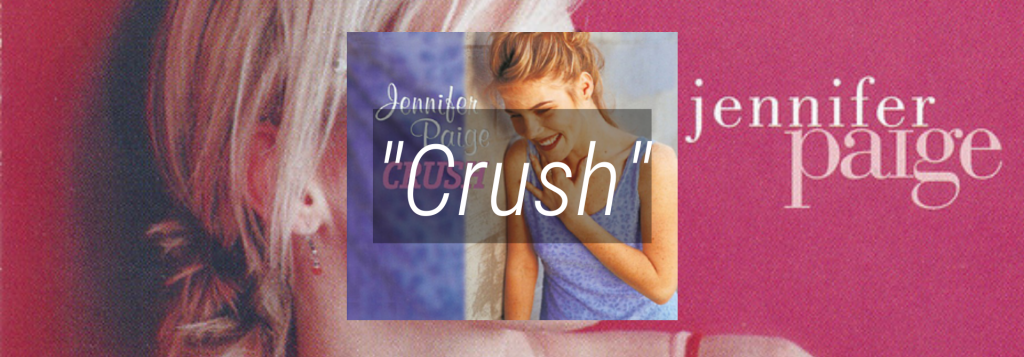For any Sputnik regulars that have interacted with me in the thirteen years I’ve been on this site, you may already know that I play the bass and have done for nearly twenty years. So with that context in mind, for no reason at all, I woke up this morning and decided I wanted to pick out a bunch of tracks I think have awesome basslines. The criteria for the chosen ten songs on this list is rather arbitrary, but essentially the main purpose is to highlight some subtle (and not-so-subtle) basslines that aren’t immediate if you’re not a bass player yourself, maybe prompting you to listen to these songs and hearing the magic unfold within them from that perspective. Maybe you’ll even listen to them and never again be able to look at them the same way. After all, that is the beauty of the bass guitar – an instrument that has been treated rather thanklessly throughout history, but is nevertheless an essential ingredient needed to make a good song even better. With that, I hope you enjoy the playlist I’ve created and my thoughts on these fantastic songs.
Jennifer Paige
Let me tell you, as a guy riding hard in his 30s, basslines in pop tracks tend to have some of the best grooves you’ll ever hear. Of course, when you’re an impressionable teenage contrarian, or a knuckle-dragger in your early 20s like I was, looking for edgy NU-metal angst, putting-the-world-to-rights punk, or that sweet, sweet butt-rock, you tended to avoid pop like the plague because it doesn’t suit your image. I was brought up on 80s and 90s pop-hit bangers, but because I never listened to music properly until I was well into my late teens, I never went back and fully appreciated what pop music could offer me as a musician until my mid-twenties. Jennifer Paige is a bit of a one-hit wonder, but goddamn was it a hit. “Crush” is an apodictic sashaying powerhouse: an upbeat number with a peppering of grief in its sound to give it an edge. Jennifer’s voice is as smooth as silk, and she delivers a very infectious and memorable performance that has stood the tests of time. However, the bassline on this thing, written by Kevin Dukes, rides neck-and-neck with Jennifer’s vocals for the centre of attention. Starting out locked in the pocket of the drums and sugary acoustic guitar strums, the bass opens like a flower at the chorus and moonwalks along the fretboard, injecting an abundance of colour and personality into what is already one hell of a chorus. The approach is masterfully executed; it’s simple overall, but has enough stage presence and energy in there to make it such a worthy contribution, ultimately making the song a timeless classic.
Breaking Benjamin
So, the year is 2006 and I’m trying to play a load of songs I like to get better on the bass. At this time, I was massively into Breaking Benjamin and more specifically, this unbelievable track. But, in 2006 the abundance of information and aid you can receive trying to learn a song these days was in extremely short supply back then. YouTube covers were barely a thing, and certainly not to the gold standard they are today, so for the majority of us peasants, we were relegated to looking at Ultimate Guitar tabs. The problem back then, in hindsight, is that none of the tabs available were right and worse, significantly watered-down what Mark James Klepaski was actually playing. Anyone who plays the bass can probably relate to that liminal period trying to develop an ear that can pick out what the bass is doing. For me, it took quite a while, self-taught and coming from a non-musical family I didn’t really understand what roles each instrument played. This was exacerbated significantly when you take into account what I was listening to in those formative years. Tool for instance bent the rules for an instrument’s conventional role so when I thought I was listening to the bass, I was actually the guitar, among other things like the band playing polyrhythms to blow my mind further. However, in a similar struggle, I primarily listened to alt-rock bands that had a tendency to have the bass shoved to the back of the mix with no supper.
“So Cold” is one such case, where Mark’s bassline can be heard, but you have to really hone in on what he’s doing. It was some years later I managed to piece together what he was doing, and the bassline overall is superb. He adds a couple of little notes in the first verse before building it up with a fill that goes into the chorus, which then segues into the second verse where Klepaski moves up the octave register to deliver a fiddly little number that works its way right up the fretboard. Couple that with a few cheeky off-the-cuff fills throughout and you have a bassline that’s locked in and faithful to what the rest of the band is doing, but adding a wealth of melody and mood into the mix to give it that added layer of complexity. Of course, the final mix doesn’t allow listeners the ability to fully enjoy what Mark’s doing, which is a shame, but it’s obviously not an essential aspect of what the song is trying to deliver on: a radio hit. Still, this kind of stuff is fun for musicians to unpack and allows you to hear things a non-musician probably wouldn’t be able to pick up on.
Nirvana
“On a Plain” is a bit of an anomaly in terms of how Kris usually approached his basslines in Nirvana. Similar to “Crush”, the bassline here is a slick note-salad that adds new flavours to what is an otherwise basic rock tune. The bass adds a subtle bounce in the same way a ska punk bass player would typically approach their parts. Going back to learning the bass, this was a song I was told to learn and I became more surprised by it the more I looked into it, because Kris’ parts don’t necessarily jump out at you unless you’re listening out for them. Once you do realise what he’s playing though, you can’t unhear it and you quickly realise how different the song would sound without that bouncy collection of grooves and notes.
Dir En Grey
There are a lot of Dir En Grey songs I could have picked for this, but “Rinkaku” is such a perfectly executed song that allows Toshiya to play in a number of different ways – while having moments so tight with Shinya’s drums it still gives me chills hearing it today. The song starts out locked in with Shinya’s booty-shaking groove, which progresses as Toshiya holds and slides some notes to build up tension before transitioning into a simple, driving bassline at the chorus. Like so many Diru songs however, there’s a “money shot” moment there for us rhythm-section enthusiasts, where my boys get to shine, and for “Rinkaku” that moment comes at the 2-minute mark, where Toshiya and Shinya unleash a 30-second barrage of air-tight grooves and busy fills that culminate into a brutal conclusion of gnarly syncopated bass notes and slides which interlock perfectly with the drum work. It’s one of my favourite moments in the band’s entire discography, and the fact it’s setting up the fantastic guitar solo only makes it more powerful. Overall though, Toshiya’s bassline here is a complex web of slap and finger-plucked bass that showcases a slew of emotions and nuances, making it one of my favourite tracks from the band. Period.
Night Verses
I’ve only been listening to Night Verses for about a year and goddamn are they good. For those who aren’t well-versed in the band, they initially started out as a rock band with a vocalist, however, my introduction to the band came from listening to From the Gallery of Sleep, an instrumental record so damn good I couldn’t quite vibe with anything from them with a vocalist. Every Sound Has a Color… is another exceptional album from Night Verses and has so many great moments to choose from, but for me “Arrival” is such a juggernaut track with multiple stages to it, I had to make it my pick here. Reilly Herrera’s style of playing, like any great bass player, is accommodating to the other instruments and in service of what the song is trying to accomplish overall. As such, he knows exactly when to let loose and when to bring the band back into a brutal lockdown of wrecking-ball-syncopation and simple-yet-expressive licks and flourishes.
Billy Talent
I would argue Jonathan Gallant is one of the most underrated bassists on the scene today. While I haven’t liked an album of theirs since Billy Talent II, his bass playing has always been consummately put together. Sometimes deceivingly difficult, his basslines aren’t gaudy and are composed entirely with the song in mind, yet, his approach is both fun to play and listen to, while, as stated, occasionally tricky to pull off correctly. Hence “This is How it Goes” making the list: an endurance test of consistent finger-picked notes driving the punk energy along.
Britney Spears
In the same vein as “Crush”, this pop-funk masterpiece really drives home how powerful the bass as an instrument can be. At its core, “Toxic”’s bassline mostly rides staccato, but its astute approach mercilessly introduces subtle slides, octaves and blink-and-you’ll-miss-them fills. The groove on this thing is mesmerising and a masterclass in great songwriting; its contribution utterly essential to its world-dominating success.
Placebo
I absolutely love Stefan Olsdal’s style of writing, and it’s not because he’s a particularly proficient player. On the contrary, like Oli in Rammstein, it’s his unwavering consistency for restraint that makes him such an admirable musician for me, and one that makes Placebo’s sound so distinct. 90% of Placebo’s tracks have Olsdal dishing out sixteenth-note strumming to give the band’s sound a fuller body, while adding this agency and energy that’s entirely their own. The oppression and slow-oscillating from the groove on “Space Monkey” makes it one of my favourite songs in their catalogue, largely in part because of Molko’s pained vocal performance, but also because the bass has this hypnotic drive to it that bolsters what Molko and the rest of the band are so shrewdly doing here.
Polyphia
It’s rare I find myself shovelling my jaw off the ground when listening to music, but occasionally I’ll stumble across something that completely blindsides me. Ryan Martinie’s playing on Mudvayne’s L.D. 50, countless Justin Chancellor moments in Tool, Les Claypool in Primus; these are elite musicians who have pushed the instrument to places you couldn’t have dreamed of forty years ago. Of course, the aforementioned musicians are getting on a bit, so who is there from my generation or younger that has done something that genuinely wows you for its innovation. Well, Clay Gober’s unique pluck-slap technique floored me when I heard the mid-section of that syncopated-yet-technical bass lead in “G.O.A.T.” for the first time. What makes the track so different from a rhythm-section perspective is that its main source of influence comes from the world of hip-hop: big, capacious beats holding down the mind-bogglingly intricate guitar parts. Yet, even with this approach in mind, Gober and Aeschliman still manage to throw in a mountain of virtuosity to give it more character (as if it didn’t have enough already).
Metallica
I’m not a fan of thrash music and as a result, I’m not a big Metallica fan either. However, I do love The Black Album and what Jason Newsted does on that record. One track that always stands out to me from a bass playing perspective is “The Unforgiven”, as it does such an effective job sitting in the pocket of Lars’ drum kicks. While I’m not a Metallica enthusiast, I’ve always respected Jason as a bass player and it’s on here, with the help of Bob Rock, where you can really hear him reining it in and delivering something impactful, something that makes the band sound massive without being flashy.















03.22.25
https://despicableband.bandcamp.com/album/ad-bc
https://deepsands.bandcamp.com/album/intended-dream
03.22.25
03.22.25
03.22.25
03.22.25
03.22.25
03.23.25
https://youtu.be/0eUneiUx-D0
03.23.25
I too am a bass player, primarily a piano player but as someone who has jammed in bands on and off bass is usually my main instrument, its definitely the most fun to play.
I did a cover of greyhaven's past material on bass, sort of an intermediate level song with some of the riffs. https://www.youtube.com/watch?v=f-Abs5BsSNs, bad video but the audio is decent enough.
i'll be sure to check out your bandcamp stuff!
other cool bass things i've been jamming on my own
-new Anberlin release of nevertake
-the used (take it away, im a fake, soundeffects and overdramatics)
03.23.25
03.23.25
bass players of sputnik assemble!
@Butkuiss
man, that has such a cool vibe to it. love the tone as well. did you guys ever record an album or anything?
@alex
you know, i didn't really think about if it would be a synth, i took it that it was a bass with a synth effect over it haha. i've just done a bit of research on it and it was played by a guy called thomas lindberg and was indeed played on a bass guitar.
love the video as well alex. i've never listened to greyhaven before and it sounds like it's right up my street. i'll have to get on them.
what bass is that you're playing, it looks like an ibanez i wanted years ago; i love the design of it.
03.23.25
03.23.25
03.23.25
03.23.25
03.23.25
Thanks dude! appreciate it
This is a Ibanez ATK 805E, they also have a 4 string version of it. It seems the bass is discontinued which is a bummer but i'm sure you can find it used some places. https://www.youtube.com/watch?v=DEoBOzI_6Ns
between the humbucker in the bridge, jazz in the neck, eq and toggle switch and tone i get a pretty good versatility in sounds, only "problem" I have is that if i try to drop the low B to A (or lower) it sort of starts to wobble, not terribly mind you but some of the newer metal bands that tune even lower I kind of wish I had a bass with a longer neck range. Aside from that it basically is able to do most genres i throw at it.